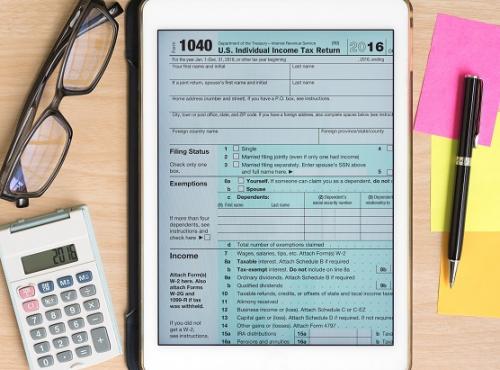Tax Tips Shared By Tax Agents for Fly-in Fly-Out Employees

Who are the fly-in fly-out employees? Employees working away from their homes for many days on a rotational and regular basis in Hobart and return to their residences outside Hobart for some days offs, which are not the same days in the consecutive weeks are generally considered as fly-in fly-out employees. Often they are even called drive-in drive-out employees. The mining professional workers are a typical example.
Hence, it can be noticed how these employees are likely to be eligible for a greater range of tax deductions compared to normal taxpayers. The tax agents involved with the particular business in Hobart guide them with the following tips to give them a general idea regarding what will be able to claim at the time of preparing their tax returns.

i. TravelingThe travel expenses, which are incurred between their homes and departure spots appointed for fly-in fly-out arrangements cannot be claimed. On the other, the air ticket costs, for instance, incurred during the trip for working generally is counted as a deduction.ii. Working At the Remote AreasWhile working in the isolated and remote areas in Hobart, for a minimum of half the tax year, that is not necessary to do continuously, then they are qualified for the zone tax offset. They might be eligible for the zone tax offset, despite working less than half the present year but worked continuously in the last year.iii. Working OverseasWhen you are working in foreign countries for a particular time period, then your income will be subjected to Australian tax law. At the same time, the local tax laws should be considered, when both the employers and employees should seek advice and suggestions from the tax agent.iv. Expenses for Self-EducationThe fly-in fly-out employees can claim their self-education for University study or for courses or if they are taking courses for improving performance and working skills. If their employers do not reimburse their expenses, then they can claim the self-education expenses. At the same time, the pre-vocational course expenses are not included in the deductions. Even if they have to attend the workshops and seminars away from their working place, then the meals and accommodation and travel costs are likely to be deducted.v. Handset Rentals, Internet Fees, and Telephone BillsFor the work-related phone calls done with their own mobiles, then they can claim a portion of their phone bills as per the percentage used for working and private matters. The same applies for the line as well as the handset rental costs, even the internet fees they often use when they work at home sometimes to send emails or conduct online training. But they have to prove how the costs are split between private usage and works.vi. Necessary Tools and EquipmentTools involved in works include a series of things like laptops, logbooks, diaries, and GPS, and more which the fly-in fly-out employees have to carry, and they might even claim for the books, journals, and magazines related to works. An immediate deduction is permitted for equipment with less than $300 cost price. If the cost is more than $300, then a decline in value later can be claimed.vii. ClothesTax deductions do not apply for normal clothes such as shirts and jeans. Only the cost of the clothes needed for wearing during the working time like the protective clothing for protection in the working environment and work time uniform are eligible for claiming as tax deductions. For the workers working outside, they might claim the deductions like sunglasses, sunscreens, and hats.viii. Tickets and LicensesThe deductions on normal licenses cannot be claimed, but further tickets and renewal fees can be claimed if they are needed to be performed for the present role.
The details discussed in this article are the particular items the fly-in fly-out employees must be more attentive about while doing their tax returns. For the remaining taxpayers, more general deductible items include the car expenses related to works, income protection, gifts and donations, medical expenses as well as fees charged by tax agents. Something to be kept in mind is the entire record must be retained, which includes the receipts and invoices as the right evidence for supporting tax deductions. Talk to the registered tax agents and seek their advice to follow the legal procedures regarding your income and deductions.
Advertise on APSense
This advertising space is available.
Post Your Ad Here
Post Your Ad Here
Comments